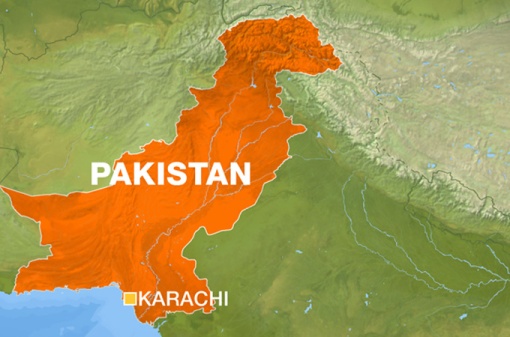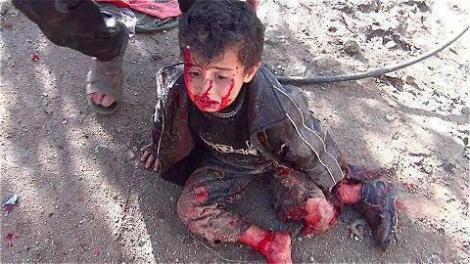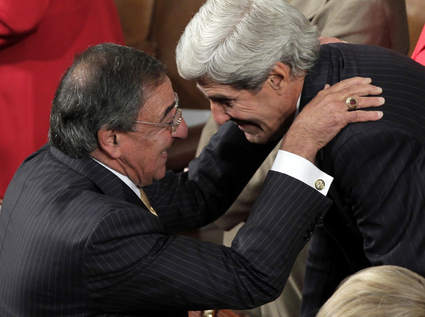Fathers and Sons and Chechnya
By Juan Cole for Informed Comment
The anger and embarrassment visible in the interviews given on Friday by the uncle and the aunt of Tamerlan and Dzhokhar Tsarnaev, the alleged Boston Marathon bombers, are entirely understandable.
But I see clues here to family dynamics that may be important in understanding what happened. In Ivan Turgenev’s 1862, novel, “Fathers and Sons,” the old man’s son, Arkady, comes back home after studies with a friend, Bazarov, after both had adopted the radical philosophy of Nihilism. Their radicalism roiled the family for a while, until Bazarov’s death. (Later, in 1881, Nihilists assassinated Tsar Alexander II).
The key back in 2013, I think, is Maret Tsarnaeva’s assertion that the father, Anzor, ‘worked in the enforcement agencies’ in Russian Chechnya. ‘We were,’ she said, ‘lucky to get him out of Kyrgyzstan alive,’ presumably because radical Muslims were trying to track him down and take revenge on him there. She also seems to imply that he was given asylum in the US easily, precisely because he had been an ‘enforcer’ in Grozny against the Muslim fundamentalist rebels, and so there was no doubt that his life was in danger from them.
It is possible that she is saying that Anzor Tsarnaev was a soldier or security policeman for the pro-Russian Chechnyan government of Akhmet Kadyrov, established in 1999 in the course of the Second Chechnya War against the Islamic Peacekeeping Army, which had invaded Daghestan.
The uncle, Ruslan Tsarni, said that the bombings had nothing to do with religion, that that charge is a fraud, he said, because he knew the family and the boys as children (i.e. he knew them to have been raised as secularists). Someone, he said, ‘radicalized them.’
Most ex-Soviet Muslims are secular and many don’t believe in God or think religion is important. Their families lived under a Communist regime for some 70 years, with its campaigns of official atheism and anti-religious indoctrination in schools. In the ex-Soviet Muslim-heritage republics, there are huge struggles between those happy in their secularism and those who are attempting to recover a Muslim identity. That struggle has played out in Chechnya as well as in Uzbekistan.
This is the transcript of Ruslan’s remarks
“I want to speak on behalf of Tsarnev. First, the only purpose here is just to deliver condolences and to share grief with the victims here. Those who were injured – this boy this Chinese girl, the young 29-year-old girl – I’ve been following this from day one.
I can never imagine that somehow the children of my brother would be associated with that so it is atrocity. I don’t know this family . I don’t know how to share that grief with the real victims.
They never lived here. The last time I saw them was December 2005.
I never knew they had any ill will towards United States. Being losers, hatred to those who were able to settle themselves – these are the only reasons I can imagine why they did this. Anything else, religion, is a fraud. I’ve seen thm when they were kids.
Somebody radicalized them but its not my brother who spent his life bringing bread to their table fixing cars. He didnt have time or chance, He’s been working.
My family has nothing to do with that family.
Of course we are ashamed! They are children of my family! Who had little influence of them. i just wanted my family to be away from them.
Again I say what I think was behind it . BEING LOSERS! not being able to settle themselves. That they were hating everyone who did.
They came early since 2003. They came to Cambridge when they moved to the States. They came to Cambridge. They immigrated. They received asylum. They LIVED there. My family had nothing to do with that family for a long time. Last time I spoke to them was 2009.
I say I teach my children. I respect this country I love this country. This country which gives chance to everyone else to be treated as a human being .
They never been in Checnya. They had nothing to do with Chechnya. They were not born there. One of them was born in neighboring country.I saw them only this morning when I was contacted at 7 a.m. with the orders. When they said have you seen the pictures I opened up internet and I saw a picture of [Dzhakhar].
I said, ‘You’re alive! Turn yourself in and ask for forgiveneess. The victims from the injured and from those who died. Ask forgiveness from these people.” He put a SHAME on our family. He put a shame on the entire Chechnyan ethnicity cause now everyone blames Chechnyans. They shamed entire ethnicity. TURN yourself IN and put yourself in the discretion of these people.
(Reporter asked: do you consider them terrorists) I would, I would. From now on, I ask you to respect our property. Again, with the families of those who suffered, we share the grief with them. I’m ready to bend in, we seek forgiveness. Thank you.”
I think what he was saying is that the Tsarnaevs were secular Chechens, as the majority of ex-Soviet Muslims are. That the family was not interested in religion or religious nationalism is supported by the reports that the two boys liked to party.
In her interview, Maret Tsarnaev seemed to me to say that the father of the two, Anzor Tsarnaev, had worked as an ‘enforcer’ for the Russian authorities, I take it as a policeman or security official [i.e. siloviki]. That was the reason, she said, that he had to flee to Kyrgyzstan. That is, far from being rooted in the Muslim fundamentalist wing of the Chechnya rebellion, as many are assuming, the family appears to have been part of the Russian Kadyrov-Putin establishment and opposed to religious radicalism there.
She also said that the father had ridden Dzhokhar and Tamerlan very hard, and that the latter had dropped out of college and gotten married, and the father had not taken it well. Their mother also seems to have been troubled,having been busted a couple years after coming to the US for stealing $1600 worth of clothing.
So you have young men from a secular, ex-Soviet Muslim family that had perhaps fought the Chechen fundamentalists. And you have young men who felt they had failed their father.
And they had started praying five times a day and listening to radical sermons, and they finally commit suicide by terrorism (they seemed to be acting Thursday night as if they were ready to die), in a cause toward which their father had been unsympathetic. (It is even possible that he had to flee in 1999 because of his identification with the Russian side).
This sounds to me like a classic father-son struggle, and a tale of adolescent rebellion, in which radical Muslim vigilanteism appears mainly as a tool for the young men to get back to their father, and perhaps to wipe off the shame they had begun feeling about the family having been on the wrong side of the Chechnya fundamentalist uprising. They were playing the nihilists Arkady and Bazarov in Turgenev’s Fathers and Sons. The shame of the secular uncle may have been mirrored from the other side in the shame of the newly religious-nationalist adolescents.


















You must be logged in to post a comment.